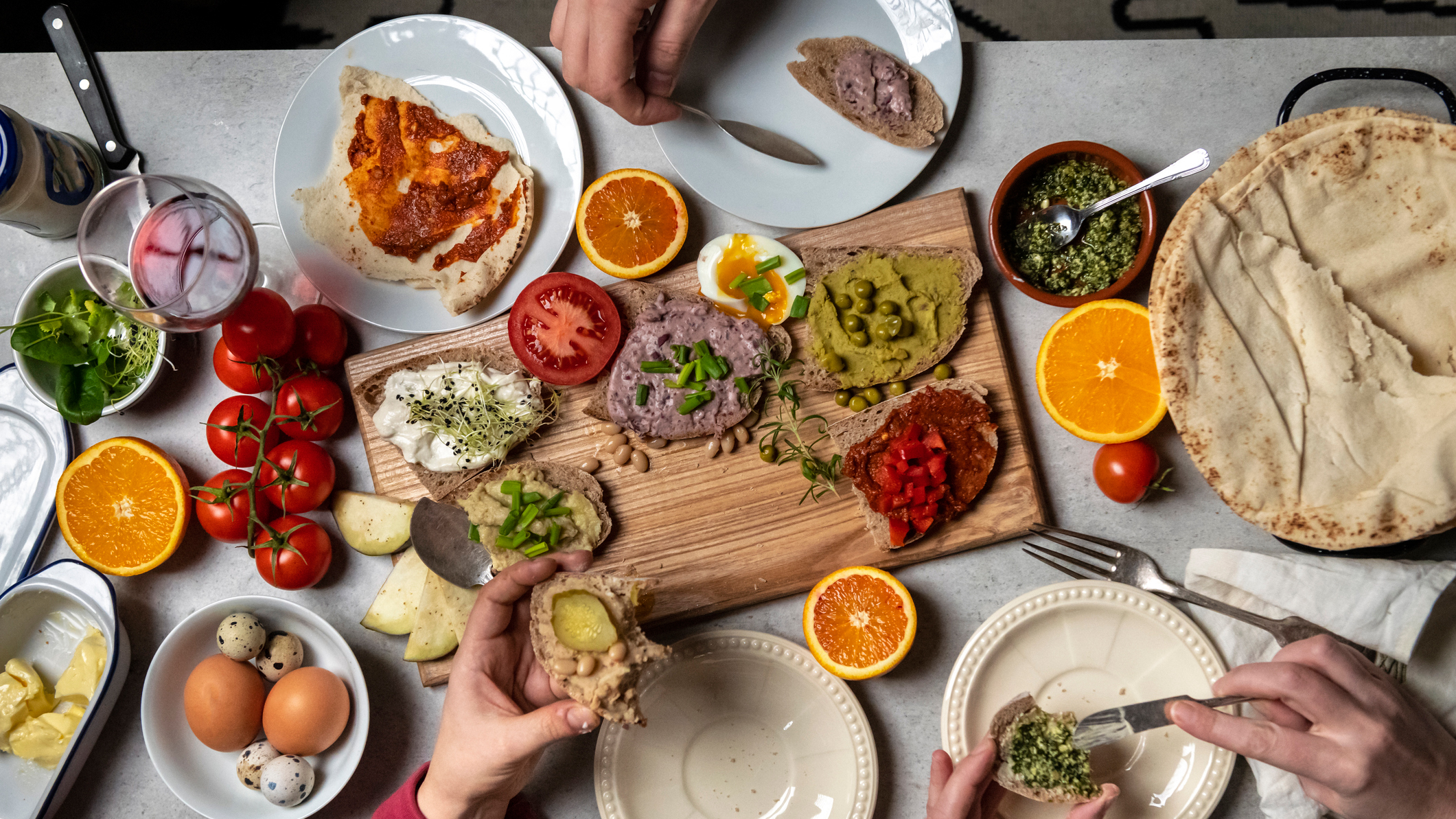Gut health: What to eat (and what to ditch) to stop stomach bloating
Here's how to find out whether your diet is causing your stomach to bloat


Start your week with achievable workout ideas, health tips and wellbeing advice in your inbox.
You are now subscribed
Your newsletter sign-up was successful
It can be frustrating sometimes. Even though you've followed the guidelines and begun cooking healthier meals, swapping your usual chicken and fries for healthier alternatives made with an air fryer or the best health grill, you can still get uncomfortably bloated. However, bloating as a result of indigestion is perfectly natural.
Sometimes, even though we eat well, do a lot of exercise and get regular sleep – in short, living a healthy lifestyle – we can still feel bloated, and it can be very furstrating trying to find the root cause of the issue. Bloating and gastrointestinal stress can be extremely uncomfortable, and often arrive as a package deal with irritable bowel syndrome.
Scientists from Monash University and the Alfred Hospital in Melbourne sought to examine some of the complaints and potential solutions around abnormal bloating and stomach distension. First off, you should never feel embarrassed about these symptoms, as according to the data, they're a lot more common than you might think.
"Bloating and distension, which are possibly separate but interrelated conditions, together comprise one of the most commonly described gastrointestinal symptoms," write the researchers. "Bloating and distension have been reported in up to 96% of patients with irritable bowel syndrome (IBS) and in 20% to 30% of the general population."
The researchers recommend a diet low in fermentable oligosaccharides, disaccharides, monosaccharides, and polyols, which "significantly reduces patients’ symptoms and improves quality of life". This diet is also known by another name: the low FODMAP diet.
Gut health: What is the low FODMAP diet?

FODMAP stands for fermentable oligo-, di-, monosaccharides and polyols. These are a group of foods which some people struggle to digest, causing bloating, cramps and other IBS symptoms. FODMAPs include the following kinds of food:
- Oligosaccharides (grains like wheat and rye, root vegetables like garlic and onions)
- Disaccharides (lactose-based dairy products like milk and cheese)
- Monosaccharides (anything with fructose in it)
- Polyols (some fruits, especially stone fruits, vegetables and low-calorie sweeteners like aspartame)
This can seem quite overwhelming, but don't worry: if you're dead-set on reducing your bloating, Monash University has created a step-by-step guide to help you make swaps from high-FODMAP meals to low-FODMAP meals. It's a tool which uses a traffic light system on whether a food is likely to trigger some of these symptoms, allowing you to make an informed choice.
Start your week with achievable workout ideas, health tips and wellbeing advice in your inbox.
The next step is to look after your gut, feeding it regular doses of fibre to make sure your digestive system is working optimally. Sources of dietary fibre include whole-grain bread, fibrous vegetables like broccoli and carrots, potatoes and sweet potatoes, and pulses or legumes like peas and beans.
One study published by Norwegian scientists found "fiber supplementation... is both safe and effective in improving IBS symptoms globally." Extra dietary fiber was also found to have other health benefits, such as lowering cholesterol levels and overall weight management. The trick is to compare the list of high-fibre foods with the list of low-FODMAP foods to avoid any overlap between the two.
Matt Evans is an experienced health and fitness journalist and is currently Fitness and Wellbeing Editor at TechRadar, covering all things exercise and nutrition on Fit&Well's tech-focused sister site. Matt originally discovered exercise through martial arts: he holds a black belt in Karate and remains a keen runner, gym-goer, and infrequent yogi. His top fitness tip? Stretch.
